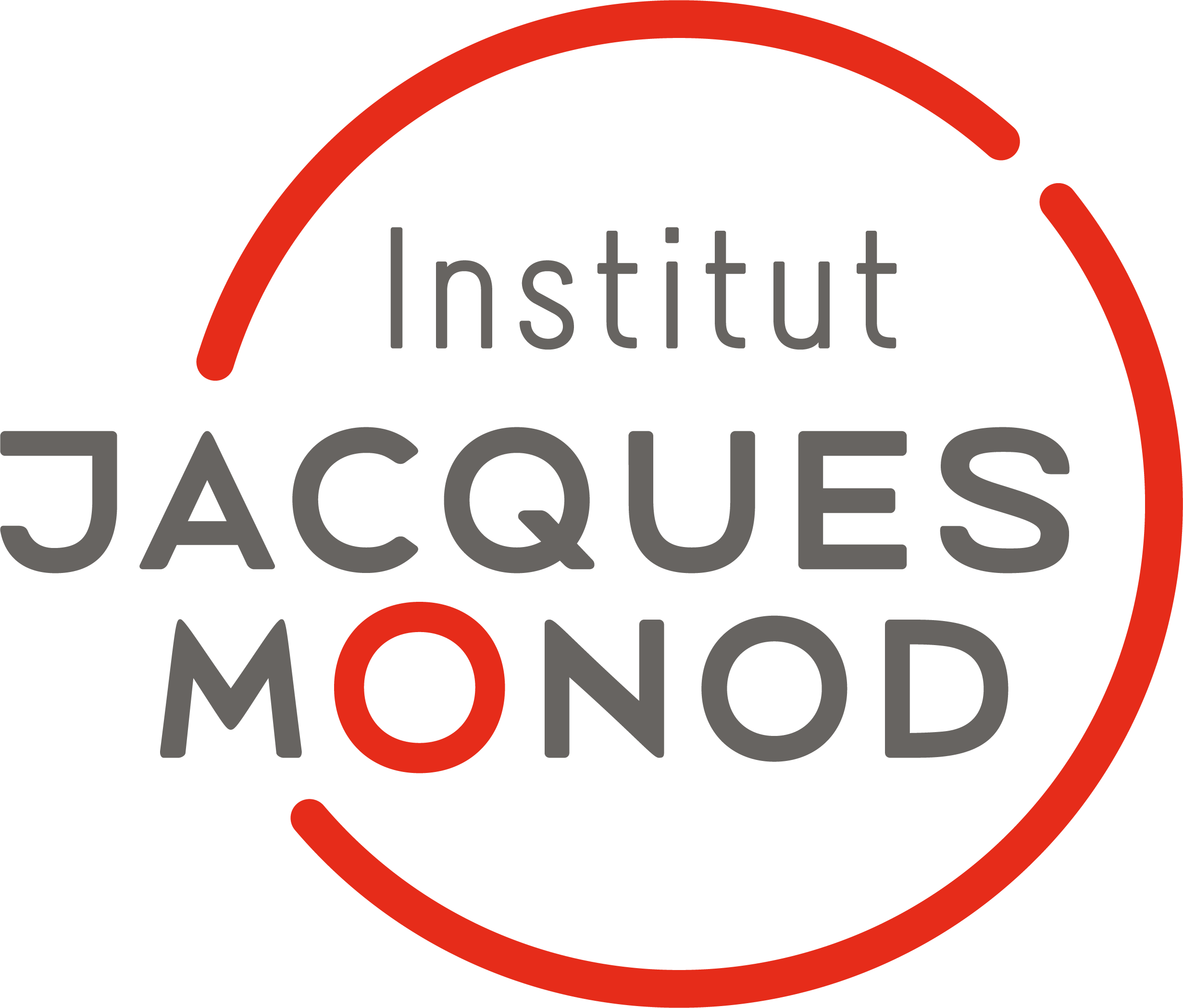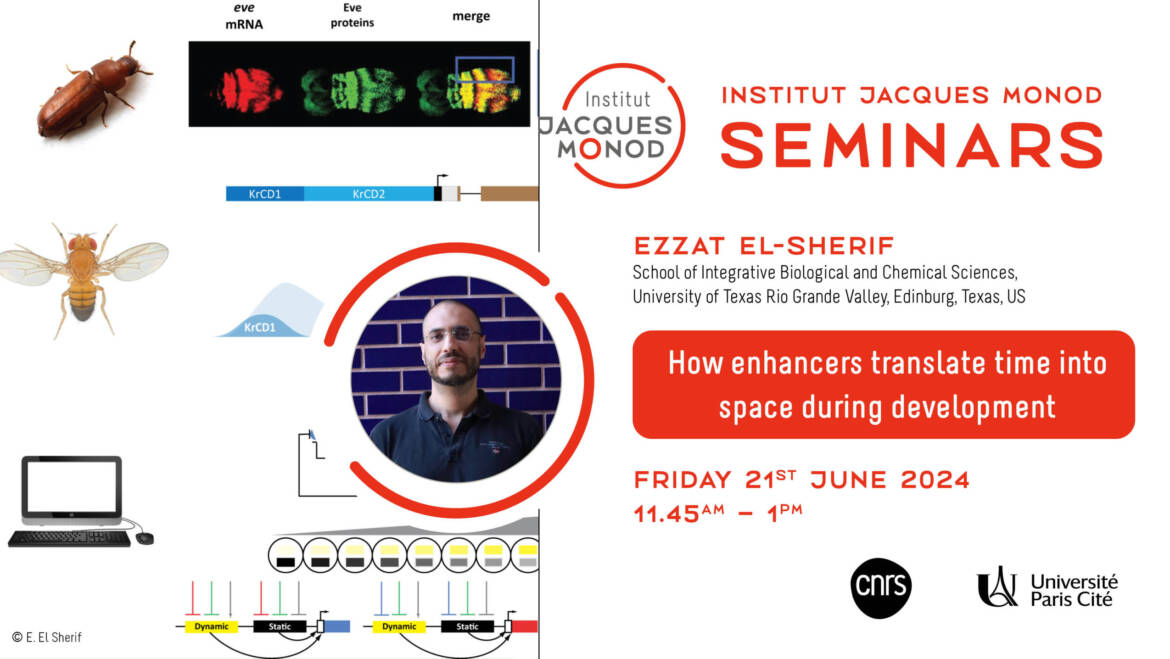Invité par l’équipe Konstantinides, Ezzat El-Sherif (School of Integrative Biological and Chemical Sciences, University of Texas Rio Grande Valley, Edinburg, Texas, US) présentera un Séminaire de l’Institut Jacques Monod sur le thème :
How enhancers translate time into space during development
Résumé :
In embryonic development, is time more important or space? Conventionally, the answer would be: Both! However, recent studies on various embryonic tissues emphasize the primacy of time, showing that spatial gene expressions often stem from converting temporal gene sequences, both periodic and non-periodic, into spatial patterns. This phenomenon has been proposed (by my work and others’) to result from the modulation of embryonic timing by morphogen gradients. Yet, the specific molecular mechanisms through which morphogen gradients modulate developmental timing remain unknown. In our work, we used the Anterior-Posterior patterning of the short-germ beetle Tribolium as a model to explore how developmental timing is modulated at the enhancer level. We first developed a predictive system to identify Tribolium enhancers, using time- and tissue-specific ATAC-seq. We then developed a live enhancer reporter system utilizing MS2 tagging. This methodology allowed us to discover several Tribolium enhancers and to investigate the spatiotemporal dynamics of select enhancers in live embryos. Our findings suggest a model in which embryonic timing is regulated by a balance between two types of enhancers: ‘dynamic enhancers,’ which prompt rapid changes in gene expression, and ‘static enhancers,’ which contribute to the stabilization of gene expression patterns.


